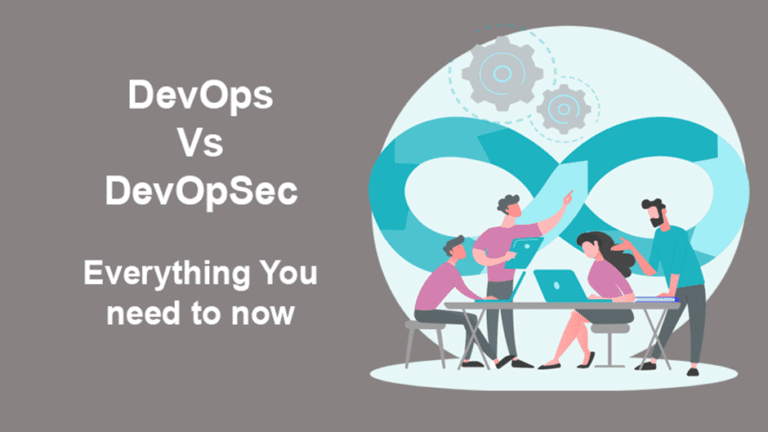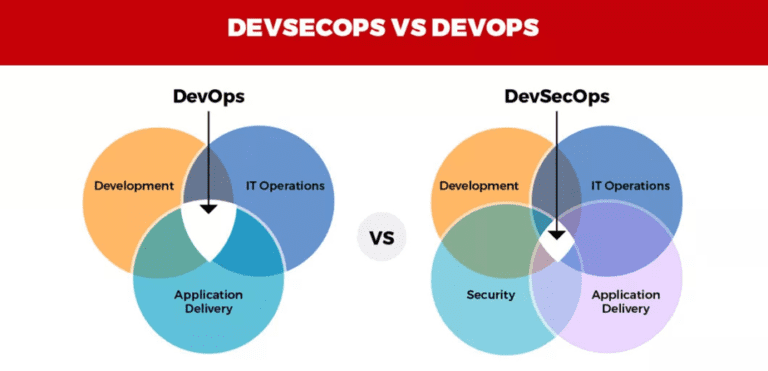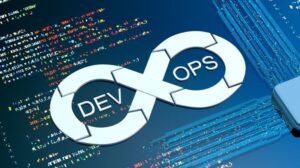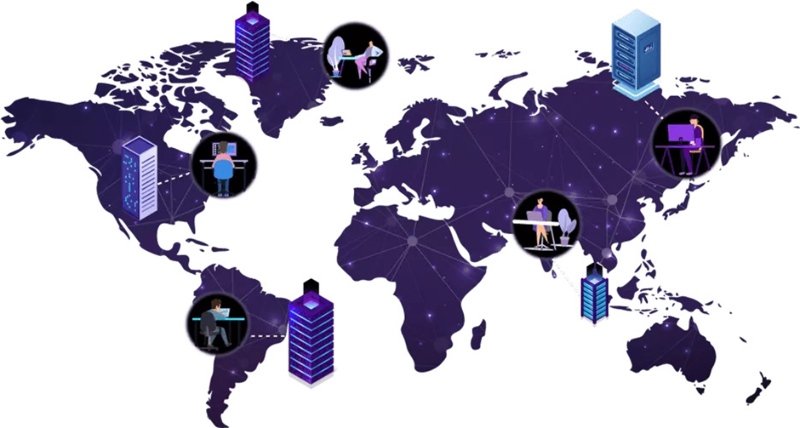DevOps vs DevSecOps: Everything you need to know!
Which is preferable: DevSecOps or DevOps? While the two may appear quite similar, fundamental differences will affect IT and business performance and your ability to go forward with the appropriate application development framework for your firm.
In this article, we will look at the similarities and differences between DevOps and DevSecOps, as well as everything you need to know.

What is DevOps?#
DevOps is a synthesis of cultural concepts, practices, and tools designed to accelerate the delivery of applications and services (Leite et al., 2020). The method enables firms better to serve their consumers, such as Cloud DevOps. We do not separate development and operations teams from each other in a DevOps approach. We sometimes combine these groups into a single group where developers work across the DevOps lifecycle, from development to testing and deployment.
What is DevSecOps?#
DevSecOps optimizes security integration across the DevOps lifecycle, from basic design to validation, installation, and delivery. It resolves security vulnerabilities when they are more accessible and less expensive to fix. Furthermore, DevSecOps makes application and security architecture a shared responsibility for the development, security, and IT task groups rather than the primary responsibility of a security silo.

What is the connection between DevOps and DevSecOps?#
Culture of Collaboration#
A collaborative culture is essential to DevOps and DevSecOps to meet development goals, such as quick iteration and deployment, without jeopardizing an app environment's safety and security. Both strategies entail consolidating formerly segregated teams to enhance visibility across the application's lifetime - from planning to application performance monitoring.
Automation.#
AI has the potential to automate phases in application development for both DevOps and DevSecOps. Auto-complete code and anomaly detection, among other devices, can be used in DevOps as a service. In DevSecOps, automated and frequent security checks and anomaly detection can aid in the proactive identification of vulnerabilities and security threats, especially in complex and dispersed systems.
Active surveillance.#
Continuously recording and monitoring application data to solve problems and promote improvements is an essential component of DevOps and DevSecOps methodologies. Access to real-time data is critical for improving system performance, minimizing the application's system vulnerabilities, and strengthening the organization's overall stance.
What distinguishes DevOps from DevSecOps?#
DevOps is primarily concerned with the collaboration between development and testing teams throughout the application development and deployment process. DevOps teams work together to implement standardized KPIs and tools. A DevOps strategy aims to increase deployment frequency while ensuring the application's consistency and productivity. A DevOps engineer considers how to distribute updates to an application while minimizing disruption to the client's experience.
DevSecOps originated from DevOps as teams discovered that the DevOps paradigm did not address security concerns adequately. Rather than retrofitting security into the build, DevSecOps arose to incorporate security management before all stages of the development cycle. This technique places application security at the start of the build process rather than after the development pipeline. A DevSecOps expert uses this new technique to ensure that apps are secure against cyberattacks before being delivered to the client and remain safe during application upgrades.
What activities differentiate DevOps and DevSecOps?#
- Continuous Integration
- Continuous delivery and continuous deployment
- Microservices
- Infrastructure as code (IaC)
The DevSecOps strategy includes the following aspects in addition to:
- Common weakness enumeration (CWE)
- Modeling of threats
- Automated security testing
- Management of Incidents
DevOps to DevSecOps transition#
Before making any modifications to your development process, get your teams on board with the concept of DevSecOps. Ensure that everyone understands the importance and advantages of protecting apps immediately and how they might affect application development.
Choose the best combination of security testing techniques#
The majority of security testing methodologies are available. SAST DAST IAST RASP, for example [(Landry, Schuette, and Schurgot, 2022)].
Create Coding Standards.#
Evaluating code quality is an important aspect of DevSecOps. Your team will be able to quickly safeguard its code in the future if it is solid and normalized.
Protect Your Application.#
Rather than attempting to protect the expanding perimeter, secure apps that run on dispersed infrastructure [(Landry, Schuette, and Schurgot, 2022)]. As a result, an implicit security strategy is more straightforward in IT organizations and strengthens your security in the long run.
Conclusion#
Should you use DevSecOps practices? There are, as we believe, no valid reasons not to. Even organizations that do not already have specialized IT security departments may have them coordinate a substantial number of the techniques and policies outlined above. DevSecOps may continuously improve the security and reliability of your software production without overburdening the development lifecycle or putting organizational assets at risk.


